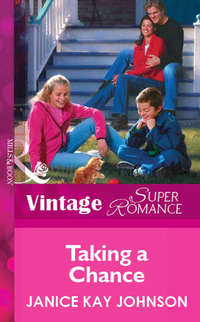
Полная версия
The New Man
“We weren’t aware that any aisle has consistently earned less revenue,” he said patiently. “Some fairgoers start at one end, some at the other, some in the middle.”
“I’ve been coming here for five years, and I have a piece in your juried show,” the bearded artist said huffily. “I’d have thought I’d earned a spot that wasn’t in Siberia.”
Alec shrugged. “You made no specific request, and I’m not sure we could have honored it if you had. Our main goal is to have variety from booth to booth. That can get complicated.”
“I may not be able to put Queen Anne on my schedule next year,” the painter responded.
“That’s certainly your privilege.” Alec inclined his head. “We have more applicants than we do openings in any case.”
If it were solely up to him, he wouldn’t have invited this idiot, and not just on grounds of personality. Alec didn’t like his grandiose oils, which lacked originality. But they sold well, another member of the screening committee had pointed out. Not everyone had taste, she’d said, adding, “I hope I didn’t just deeply offend somebody here who loves his work.”
Not a soul had admitted to being so shallow.
Ashamed of his pettiness, which he knew stemmed in part from irritation, Alec moved on.
A jeweler who was a newcomer to this show was laying out wonderful, imaginative pendants and earrings on black velvet trays. Witches and mermaids and fat old ladies in yellow danced from delicate wires. Niobium and glass and sequins had somehow been persuaded to come alive.
He complimented her on her work, fingering one pendant with a fiery-haired enchantress apparently dancing in nothing but a childhood fantasy of a tutu, her topless state a mere hint but enough to make him glance down the aisle, toward Number 143.
Did Helen Schaefer, businesswoman, ever abandon conventions and let herself feel purely joyful?
Alec frowned. Damn it, he’d barely met her! She probably had a Mr. Schaefer at home. He was pretty sure she’d worn a wedding ring. He doubted that she’d meant to flirt, despite that remark about him smelling good enough to eat.
“I’ll give you a discount.” Smiling, the young, pierced and tattooed jeweler nodded at the pendant in his hand. “You look taken with it.”
For a moment, he hesitated, tempted. But what would he do with the darned thing if… No. It wasn’t the kind of gift you gave your dark-haired sister for her thirty-fifth birthday. And he wasn’t even dating these days.
“Thanks, but I don’t think so.” With a pang of regret, he laid it back on its spot. “Your jewelry is going to sell like Beanie Babies did in their prime.”
He ambled on, nodding and exchanging a few words with vendors he had already met, checking out a booth of framed black-and-white photos of staircases and shadows and faces turned away that stood out from the usual wildlife and scenery fare. The photographer was off somewhere, and Alec made a mental note to stop by the next morning.
He was only a few tents away, engaged in conversation with a candlemaker, when he saw Helen Schaefer come out of hers, close the flaps and climb into her pickup truck without a backward glance. In seconds, the truck maneuevered around the corner, turned into the school playground and was gone.
She’d be back, he reminded himself. Tomorrow he could stop by and say hello, thank her again for the soap. Maybe ask about her family, in the hope that she wore the wedding ring out of sentiment rather than as a label.
As he did. Alec glanced down at the plain gold band on his left hand. It was a part of him. He hadn’t taken it off in sixteen years, not since the moment he said, “I do,” and kissed his bride.
He wondered how Linda would feel about him taking it off now, maybe putting it in the carved wooden box from Poland she had given him for Christmas many years ago that sat on his dresser. Was she anywhere she could know?
Damn it, Alec thought, what was wrong with him? This wasn’t the time to let himself get sucked into an eddy of regret or sorrow. There was no reason to dredge up the past just because he’d met a woman who had fleetingly made him imagine falling in love again.
Still he walked faster and made his last few greetings briefer. It was nine o’clock on Thursday night. Yeah, okay, Devlin was fourteen and therefore old enough to be in charge, but chances were he’d have spent the evening closeted in his bedroom, the door firmly shut, music shaking the timbers of the house. If his sister was being abducted, he wouldn’t hear her bloodcurdling screams.
Not that Lily wasn’t responsible, too. She knew better than to answer the door without being sure she knew who was on the other side. But she was only eleven, teetering between childhood and adolescence, her body dragging her along despite any protests her father occasionally uttered to God. Lately she’d taken to hunching her shoulders and wearing sacky sweatshirts stolen from her brother’s closet. Alec guessed it was time to tackle buying her first bra. Not the kind of purchase he had ever envisioned having any part in.
There weren’t any police cars parked in front of his house, and he didn’t feel a bass thumping through his bones when he got out of his Mercedes in the garage. Alec frowned. Dev wouldn’t have taken off and left his sister alone, would he?
But upstairs he found unusual harmony, the two slouched at opposite ends of the couch as they watched a movie that wasn’t familiar to Alec. The coffee table was littered with plates, empty pop cans and candy wrappers.
“Hey, guys.” He leaned against the back of the couch. “I’m home.”
“We noticed,” his son said disagreeably.
“Hi, Daddy.” Lily didn’t tear her eyes from the big-screen TV.
“What are you watching?”
His son gave him an impatient glance. “Don’t worry. It’s PG13. We rented it. Last night. Remember?”
Alec did vaguely recall paying for a couple of DVD rentals while they were grocery shopping. He’d glanced to see what they had chosen. He hadn’t recognized either title, but neither had appeared inappropriately gory or racy for an eleven-year-old.
“Good enough,” he said. “I take it you had dinner.”
“We ordered pizza. There’s some left in the fridge,” Devlin added begrudgingly.
“Thanks.” Obviously not needed in the family room, Alec retreated to the kitchen, where he put a couple of slices of pizza in the microwave. He shouldn’t eat crap like that, but he didn’t have the energy to hunt for something more nutritious.
While the microwave hummed, he checked his voice mail and glanced through the day’s snail mail. Neither produced anything interesting or urgent to distract him from his restlessness.
Setup for the annual arts and craft fair, which he and Linda had been involved in starting, was going smoothly. The quality of work for sale was better than ever, publicity had gone like clockwork, and the weather was cooperating. His kids were getting along.
So what the hell was wrong with him?
Of course he knew. Something about Helen Schaefer’s big brown eyes had gotten to him. He’d loved her smile, her gurgle of a laugh, her puckered forehead when she concentrated on laying out the soap. His hand had itched to touch her hair, a shade of auburn that could be subtle or brash depending on the light.
He was pretty sure she’d worn no makeup to enhance her creamy skin. Her hair had been scraped back in a ponytail so tight it looked painful. Her gray T-shirt and faded blue jeans sure hadn’t been worn to entice. But something about her had punched him in the gut.
He scowled at the microwave, which beeped obediently as if he’d terrified it into finishing. About time. He didn’t like hanging around the kitchen.
Carrying a soda and his plate of pizza, he stopped in his tracks. Funny, it hadn’t occurred to him until this minute how uncomfortable he was out here.
He turned around and looked at the room he and Linda had redone when the kids were little. Small-paned windows framed a view over roof-tops of Puget Sound. Mexican tiles covered the floor, their warm russet color echoed in the smaller hand-painted tiles that formed the countertop and backsplash. They’d eaten most of their meals at the antique table in the center of the room. In those days, he had paid bills at the desk in a nook that had once been the pantry. A refinished armoire had held toys and games, and the kids played on rag rugs Linda wove on crude looms. She had always kept several vases filled with flowers in here. They’d loved the kitchen when they were done remodeling it. They had lived in here.
The kids still ate at the kitchen table when they gobbled breakfast or lunch, but when the three of them sat down for a meal together, it was in the dining room. He didn’t even remember what excuse he’d used to initiate the change. They were all probably too numb to notice.
He couldn’t stand the kitchen because it reminded him of his wife. As if he’d conjured her, he saw Linda turning from the stove, smiling at him. She had been a tall woman, only a couple of inches shorter than Alec, her Swedish blond beauty flawed only by a nose she claimed was too big, and by a tendency to be clumsy. The first time they met, she fell into his arms. Literally. Given her size, he’d barely kept her from crashing to the ground.
“Linda,” he whispered, and she faded, taking with her the clear memory of her face.
Turning abruptly, he fled the kitchen for his office. There, the photograph of his wife was too familiar to bring her to life.
Looking away from it, he had a flash of memory in which he saw another woman’s face, another woman’s smile.
And the glint of gold and diamonds on the other woman’s left hand.
As he lifted the can of soda to take a swallow, he eyed his own wedding ring.
There was undoubtedly a Mr. Schaefer, but it wouldn’t hurt to ask, would it? There was something about Helen, who confessed to loving scents redolent of kitchen and home, that had given him hope he might love again.
A smile tugged at the corner of his mouth, and he remembered the bar of soap still sitting on the seat in the car. He’d have to go get it. Start his day tomorrow with the pungent scent of eucalyptus.
CHAPTER TWO
“DO YOU HAVE the cash box?” eight-year-old Ginny asked, with the air of someone who constantly has to remind her mother how to drive, cook and tie her shoelaces.
“In my bag,” Helen confirmed, hiding her smile. She locked her car, parked on the gravel shoulder of a side street. “Ready?”
“Of course,” her daughter said with preternatural composure. A small, slight figure, she adjusted her day pack on her shoulder. “We’d better hurry.”
It was true, Helen saw with a glance at her watch. A minor accident on Aurora had slowed traffic to a crawl.
She and Ginny walked as fast as they could the few blocks to the elementary school field where the arts and craft fair had sprouted like a peculiar mushroom after a rainfall. Even first thing on Friday morning, tantalizing aromas drifted from the food booths that had sprung up around the periphery. Colorful flags fluttered above the red-and-white-striped tents. The juried art show was in the gymnasium, and another displaying children’s art filled the halls of the school. Banners were slung along chain-link fences.
Helen had just time to tie back the front flaps of her tent, say hi to her neighboring exhibitors and put money in the cash register before the first shoppers, a pair of women, wandered in.
“Ooh!” one exclaimed, lifting a bar of soap. “Smell this one.”
Ginny gave her mother a satisfied smile.
Kathleen was working at her day job today, but, with her daughter Emma, could handle the booth tomorrow. Jo, who had roomed with the two women until she married Kathleen’s brother, Ryan, had promised to spend a few hours here this afternoon to give Helen a break.
By ten-thirty in the morning, the grassy aisles between the rows of tents were clogged with mothers pushing strollers, fathers bouncing toddlers on their shoulders and grandmothers outfitted with walkers and flowery hats. Overshirts were vanishing into tote bags. Spaghetti straps and straw hats abounded. The day promised to be the hottest yet in July, which meant the mercury would top eighty. Given the humidity, Helen was glad to be in the shade most of the time.
Ginny’s shyness vanished at craft fairs. She gravely answered questions, helped people find particular soaps and assured them that the shampoo was “the best.”
“My hair is really clean.” She tilted her head so these particular women could see. “Some of the stuff from stores makes me itch. Mom says my skin is sensitive.”
One of the women hid her smile. “Really. Mine is, too. Heck, I’ll give it a try.”
“So’s Buster’s skin.” Her companion reached for a bottle of the pet shampoo. “That darn dog is allergic to everything!”
Ginny smiled her approval. “Auntie Kathleen doesn’t put anything artificial in her shampoos or soaps.”
Both women laughed. Ginny looked puzzled. Her solemnity and adult speech came naturally to her. Somehow, after her father’s death, she’d quit being a child. Once she came out of her shell, she was a miniature adult. She could never understand why real grown-ups found her amusing.
“What a doll!” The woman with the pet shampoo took bills from her wallet. “Is she yours?”
“Yes.” Helen smiled as she made change. “She’s eight going on forty.”
“And what a saleswoman.”
Helen laughed, too, although she worried about Ginny. An eight-year-old should be playing with Barbies or jumping rope with friends, not going to work with her mom. But this was almost always Ginny’s preference. She did have a few friends, which was an improvement over two years ago, but she would politely turn down offers to go to one of their houses if her mother was working a craft fair that day. Helen could never decide whether Ginny loved selling soap so much, or whether this was another manifestation of the way she’d clung after Ben died.
But if Helen argued, Ginny would gaze up at her with wounded eyes and say, “But aren’t I a help? You always say I am.”
What could Helen do but throw up her hands. “Of course you are! I just don’t want you to feel you have to come.”
“I want to.”
So here Ginny was, a skinny little girl with mouse-brown hair in two braids, a thin face and great big eyes, patrolling their booth with the relaxed efficiency of an experienced saleswoman.
Jo showed up at noon on the nose. Despite the heat of the day, she managed to look cool in khaki shorts, sandals and a white tank top, her short dark hair shining and bouncy. In contrast, Helen kept pushing escaping strands off her sweaty forehead.
Jo made a face. “I had to park about a mile away. This place is jammed!”
“Business is really good.” Helen turned from her and smiled at a customer who was holding one of Logan’s beautifully made wooden boxes packed with Kathleen’s products. “Oh, you’ll enjoy this,” she said, ringing up the purchase. “The mint is wonderful.”
“Actually, I’m going to tuck it away for Christmas. This—” she set down a citrus bar on the card table “—is for me.”
“Ah. Well, I’ll put a card in your bag in case you decide you want more after you use this one up. A number of stores in Seattle stock our soaps.” She glanced at the total. “That’ll be $68.73.”
“You do take checks?”
“You bet.”
Another satisfied customer. In the lull that followed her departure, Jo asked, “Do you want to grab a lunch break?”
Helen looked around. “I’d better make it a quick one. I don’t know if you can keep up by yourself.”
“I’m Wonder Woman.” Jo flexed what biceps she had. “Of course I can.”
Helen laughed. “Well, Ginny is itching to see the children’s art. I wish her teacher had known how to enter her students’ work.”
“Wouldn’t she love that?” Jo flapped her hands. “Go, go! I’ll be fine. Get something to eat while you’re at it.”
“Bless you.” Helen was starting toward Ginny when the sight of a man entering the tent made her heart give a funny bump.
Alec Fraser, of course.
He looked directly at her, as if half a dozen other people didn’t crowd the tent. “Hi.”
“Hi.” She returned his smile.
He sidestepped so a young woman pushing a stroller could maneuver between him and a pyramid of soap bars. “Looks like business is good.”
“It’s amazing. If it stays this busy all weekend, we’ll sell everything.”
“That’s the way we want it.” He paused. “Can I get you anything? I can bring you lunch, if you tell me what you like.”
She almost asked if he was offering this service, too, to all exhibitors, but refrained. She wasn’t sure she wanted to know.
“Oh, thank you, but I have help. In fact, I was just about to take my daughter to look at the children’s art.”
“Really?” His gaze followed hers to Ginny, who was getting a bar of soap from a bin and handing it to an elderly woman with a cane. “I’m heading that way.”
Helen’s heart gave another lurch. She knew a lie when she heard one. He wanted to spend time with her. She didn’t understand why. As handsome as he was, he must be fending off women with considerably more style—not to mention looks—than she had. But he stood there with his hands in the pockets of his chinos, smiling warmly at her and waiting as if in sublime confidence that she would say “How nice. I’d love your company.”
Blinking, she realized she’d actually said it, not just thought it. Out of the corner of her eye, she saw Jo wink and give her a surreptitious thumbs-up. Helen blushed.
She raised her voice. “Um…Ginny? Jo’s here. Let’s go look at the art inside.”
Ginny pointed the elderly woman toward Jo and joined her mother. “Okay. Can we get lunch after?”
“Of course.” Helen put a hand on her shoulder and steered her out of the tent. “Ginny, meet Mr. Fraser. He’s on the committee putting on this fair. Alec, this is my daughter, Ginny.”
“Nice to meet you.” He smiled at her. “I have a daughter not much older than you. Lily is eleven.”
“Lily is a nice name.”
“Thank you.”
Her brow furrowed. “Are you coming with us?”
“I thought I would, if you don’t mind.”
The furrows deepened.
Helen squeezed her shoulder meaningfully.
“Okay,” Ginny mumbled.
“Thank you.” Looking over the eight-year-old’s head, Alec met Helen’s gaze. His eyes were very blue.
She felt sure she was blushing again, and hoped he’d attribute it to the heat.
They made their way through the crowd toward the school, Ginny lingering at food booths to check out the choices, before they entered the cool building.
A few people wandered about, looking at the children’s artwork and talking in low voices, but there were nowhere near as many as were outside. Helen had a long drink from the fountain beside the rest rooms. Ginny was already twenty feet ahead, crouching in that effortless way children have to examine a brightly colored picture that hung low on the wall.
Alec looked at Helen’s mouth, then back to her eyes. “Feel better?”
“Lots,” she admitted. “Crowds get to me.”
“Claustrophobic?”
She wrinkled her nose. “Maybe a little. Oh, I don’t know. I really enjoy selling, which is weird since I don’t exactly have the right personality. I work at Nordstrom, too.” As if he cared, she chided herself. But he looked as if he did, her shy glance told her. “But when it’s crowded like today, I can hardly take a breath between helping people. Not,” she added, “that I’m complaining.”
“I didn’t think you were.” He stayed at her side as she slowed to look—oh, admit it! she was pretending to look—at some charcoal drawings.
When she glanced at him again, she saw that he was watching Ginny, who had her head tilted like a bird as she examined something with intense concentration.
“Is she artistic?”
“Yes, actually she is.” Helen watched her daughter, too. “I think her drawing is really extraordinary for an eight-year-old. She takes it seriously. I wish…” She stopped.
“You wish?” Alec Fraser’s focus, as intense as Ginny’s, was on her face.
“Oh, just that I could give her more opportunities.”
“I wonder,” he said thoughtfully, “if expensive art classes really are valuable. Your Ginny may learn more sketching on her own, without any pressure, than she would if she had lessons.”
“I wish I could be sure.”
Ginny had moved on to a case of what appeared to be ceramics. Her nose nearly touched the glass.
“What parent is ever sure?” Alec’s tone was dry.
“You said you have an eleven-year-old?”
“And a fourteen-year-old son, who is in a sullen phase. I’m praying Lily doesn’t decide to imitate her brother.” His smile wasn’t quite a smile. “My wife died two years ago. It’s been tough on the kids.”
Helen’s chest felt squeezed and her voice came out sounding thin, not her own. “And on you. I know, because I’m a widow.”
They had both stopped walking and stood facing each other. His eyes narrowed. “When?”
“Three years ago.”
“What happened?”
“Ben had a brain tumor. It was…drawn out.” Those few words barely began to hint at the agony of the two years that followed his diagnosis. “Your wife?”
“Leukemia. She started feeling tired, went to the doctor, and six weeks later she was dead. That quick.”
“You were very, very lucky then,” Helen said simply.
His mouth twisted. “It…didn’t feel that way. But I know you’re right. If she couldn’t get better…”
Her voice hardened. “Watching a person you love suffer is a living hell.” Especially when you knew you were the one responsible. The one who insisted one more treatment be tried, that—however irrationally—hope not be abandoned.
“Yes.” That was all he said; all he had to say.
Together they turned and started down the hall again, shoulder to shoulder.
“You haven’t remarried?” he asked after a minute.
“No.” She thought of all the things she could say, but chose not to. “You?”
“No. I’ve barely dated. Helping the kids through this has consumed me. Linda and I were involved in starting up this arts and craft fair and administering the scholarships we give with the proceeds, but I didn’t even come last year. I just…couldn’t.”
Hearing the anguish in his voice, Helen asked, “Did Linda come the year before?”
Looking straight ahead, he talked. “Sick and shaking, she insisted. We both knew she was dying, but we pretended. She bought a hat to cover her bald head. She wouldn’t wear a wig.” He was silent for a moment. “She died eight days later.”
“I am so sorry,” Helen whispered, reaching for his hand in an instinctive need to comfort.
He glanced down in surprise, then turned his hand in hers to return her grip. The smile he gave her—tried to give her—was flavored with grief and lacked the charm of his earlier ones. “Thanks.”
They were gaining on Ginny, who was spending long minutes in deep concentration on works of art that interested her. Helen gave his hand a gentle squeeze before letting go. The last thing she needed was to have to explain to her daughter why she was being so friendly with a man she barely knew.
“Hey, kiddo. See anything you like?”
“This one.” Ginny turned her head several ways, as if to change the perspective. “I wish I could draw like that.”
In the colored pencil work that had attracted her attention, a boy and a puppy wrestled on a shaggy lawn, scattering fluffy dandelion heads. The detail, shading and lifelike quality were extraordinary. Especially for an artist who was only…
“Seventeen,” Helen said. “The girl who drew this has nine years on you, Ginny. Imagine what you can learn in nine years.”
“I don’t know if I can learn this much.” Ginny sighed and said abruptly, “I’m hungry. Can we go eat?”
“Sure. Did you decide what you want?”
Ginny, of course, was a connoisseur of fair-type food. “I think I’ll have a gyro today. A chicken one. With feta cheese.”








